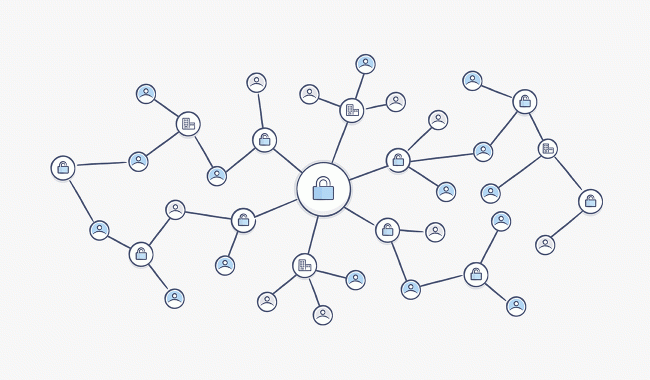
At some point in the life of your business, you’re almost guaranteed to run into cash flow issues. Your underlying business model might be sound, and you might have plenty of orders on the books, but without money actually flowing into your account, you can soon find yourself in trouble.

5 Ways to Prepare Your Business for Disaster
The data suggest that cash flow problems are a remarkably common occurrence. According to Entrepreneur magazine, more than 82 percent of small businesses and startups fail because of poor cash flow management, not because there is a problem with their underlying business model. If you’ve got cash flow problems, that statistic should scare you.
So how do companies get into cash flow problems in the first place? And what can they do to steer themselves of a cash flow crisis?
Keep A Rainy Day Fund

9 strategies for saving money to build a rainy-day fund
It might seem like a good idea to keep all of your capital working all the time to maximize your revenue, but there will be times in the life of your business when money will be short, and you’ll run the real risk of not being able to pay people. A client might not pay, or you might get hit with a big bill you didn’t expect. It’s a good idea in these circumstances to have a rainy day fund on hand to help dig you out of a hole and keep your business ticking over.
Economists say that these types of savings have “option value.” In other words, keeping some money back is valuable because it gives you the option of diverting funds from one task to another – an option you might not have if your money was tied up in investment projects. In general, long-time CEOs recommend having a couple of months worth of expenses on hand at any given moment so that you can continue to meet your obligations in the event of a crisis.
Keep A Cash Flow Budget

Managing Your Finances the Easy Way
If there’s one thing that accountants implore new business owners to do, it’s to keep a cash-flow budget. Accountants know that many businesses are viable: that is, over the course of the year, they’ll receive more money than they spend, making a profit in the process. But accountants also know that during the course of the year, their finances can fluctuate wildly. One week a company might be well into the black, the next they’re deep in the red. What matters from an operational perspective isn’t the performance of the business over the course of the entire year, but whether it can continue to make payments to vendors and employees, week after week. If each week isn’t budgeted for correctly, companies can get into trouble.
Think carefully about the times when your expenses are likely to be the highest. Seasonal holiday businesses, for instance, usually experience a lull in trade in January and February, but their expenses remain relatively constant. (They still have to market their company, take bookings, pay management and executives and so on). Plan for these periods and make sure that you save up enough cash during peak times to see you through.
If your business has been up and running for a while, you can also check your statements from previous years to keep tabs on when your income is likely to rise and fall. This will help you predict your week by week cash needs. Don’t just guess.
Follow Up On Your Due Receivables
When a client refuses to pay on time, things can get awkward. As a business, you’re used to doing everything you can to please your clients, but some companies take this too far by refusing to follow up on customers who don’t pay up when they should.
Cash flow depends on money coming in faster than it is going out, so if your clients are in the habit of paying late, your cash flow can quickly suffer. If you go too long without getting the money you’re owed, you can run into severe financial problems, like not being able to pay employees, which could ultimately derail your business.
So what can you do about it? If possible, try to take the personal element out of payment. Whatever your relationship is like with your customer, always leave matters of payment to your company policy. Have a clear policy which sets out the due date, your customer’s obligations, and any action you’ll take if they pay late, including penalty payments.
There are plenty of examples online of good late payment policies, including charging an additional 5 percent if a payment is more than a week late, and stopping all work if payments are not collected after 30 days or more.
If you get unlucky and a whole series of customers refuse to pay on time, you can also get around cash flow problems by using factoring for payroll. Your main priority during a cash flow crisis is to keep your workers happy. You need your employees around to continue drumming up new business, but if you can’t pay them, few will stick around. Many companies solve this problem by selling on their invoices to third party companies in exchange for cash today. Factoring reduces the risk faced by the business, puts money in workers’ pockets and passes all of the stress and hassle of obtaining payments onto another organization specialized in that kind of work.
Don’t Spend Recklessly In The First Weeks And Months

Want To Be Rich? Here’s How To Spend Your Money!
As with anything in business, there is a learning curve, including when and when not to spend money. For new companies, especially startups, the number of products on offer to help them run their businesses more efficiently are seemingly endless. With aphorisms like “it takes money to make money” entrepreneurs can easily justify practically everything that is offered to them, even if it doesn’t provide any meaningful value.
The problem for many founders is that VC money usually only arrives in timed tranches. Rather than getting all the capital up front, it’s released slowly over the course of many weeks and months. Impulse spending, therefore, can seriously affect how much money a startup has on hand at any given moment.
When it comes to avoiding spending recklessly, there is no formulaic answer. The only real answer is to ensure that you are only spending money on services that you really need. For instance, you probably don’t need to pay for marketing automation services if your company is producing a single blog per week.
Don’t Overstate Your Sales Potential
Entrepreneurs love their products. And while this is usually a good thing, it can sometimes cloud their judgment, especially when it comes to financial matters.
One common problem is overestimating demand. An entrepreneur will sometimes get positive feedback from their first few clients and then reach the conclusion that everybody in the market feels the same way. What they don’t realize is that the very people who come to them first are those who stand to benefit the most from what they’re doing. For everybody else in the market, it’ll be a harder sell.
Overstating sales potential is dangerous because it can change decision-making in the present. A CEO might decide to embark on an expensive marketing campaign, thinking that demand for their product is out there, only to find out that it is weaker than they expected.
The solution is to go to the data. If you’re in an industry with other similar players who sell products similar to yours, take a look at their revenue and their marketing ROI. If they’re established brands, their return is likely to be higher than yours, at least to begin with, and so try to find a like-for-like company in your segment and look at historical data. Be realistic about the sales volume your business can achieve and make decisions based on conservative estimates. If things do eventually turn out better than you predict, you can always up your spending at a later date.
Another option is to go to a mentor: somebody with experience in the industry, who can tell you what to expect. Often they’re able to provide you with copies of their own historical numbers, showing you how their company performed after it hired extra staff or began a new marketing campaign.
Check Your Client’s Credit Status

5 Unconventional Funding Solutions for Fantastic Startup Growth
Sometimes cash flow crises come about because companies don’t check their customers’ ability to pay. In the worst case scenario, money can never be recovered and has to be written off as bad debt.
Businesses need to prevent this from happening at all costs. If you are planning to sign a big deal which could cause your company to fail if the client can’t pay up, it’s worth running a credit check on them. Credit checks help to establish a customer’s historical payment performance. A low credit rating should be a warning sign that a customer may not pay up.
If a client does indeed have a poor credit rating, that doesn’t necessarily spell the end of your relationship with them. It just means that you may have to ask for money up front before any work is carried out.
In conclusion, cash flow problems are common and can lead to ruin. Heed this advice and don’t leave anything to chance.






